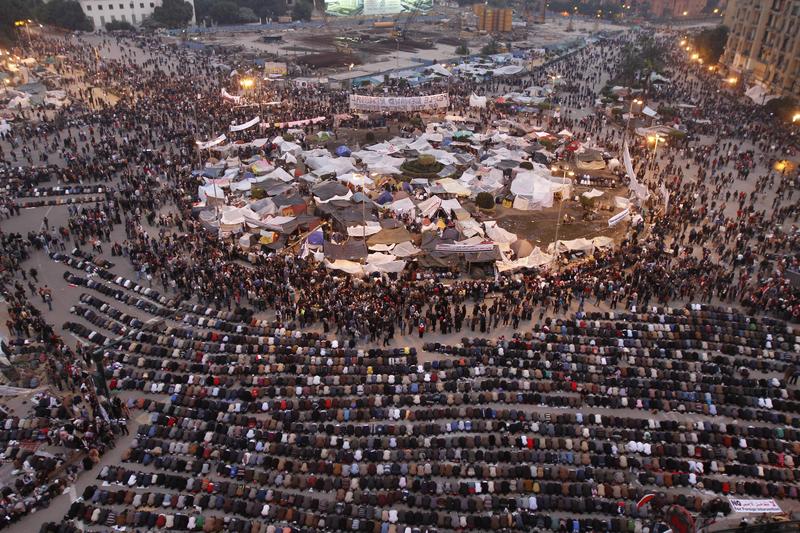
Welcome to Politics Bites, where every afternoon at It's A Free Country, we bring you the unmissable quotes from the morning's political conversations on WNYC. Today on The Brian Lehrer Show, University of California’s Reza Aslan discusses the latest from Egypt, and the role religion plays in the Arab world and the United States.
Reza Aslan is trying to tamp down American fears that Hosni Mubarak's fall will result in the rise of a radical Islamic state spearheaded by the Muslim Brotherhood. Meanwhile, Christian politicians Mike Huckabee and Rick Santorum are fanning those very flames. For his part, Aslan's pointed that the Christian right and Muslim Brotherhood could be considered ideological cousins.
Mike Huckabee and indeed many of the Christian conservatives in the US. have far more in common with the Muslim Brotherhood than they'd like to admit, in that all of them very much want to see a role of religion in society. They want to see society founded upon a very specific moral framework, in the case of the Christian right, Christianity, and in the case of the Muslim Brotherhood, Islam.
Egyptians are significantly more open to having religion play a part in politics than Americans are. There's no getting around the fact that 90 percent of Egyptians are Muslim, and over 90 percent of the population thinks religion should play a role in their leaders' political decisions. (In the U.S. about 60 percent say so.) Democracies are based upon the choices of the majority, so if we're going to see democracy in Egypt, we're going to have to deal with some religion, Aslan said.
We can't start a democratic process in a place like Egypt by simply cutting out some group that represents some 20 to 25 percent of the Egyptian populace. They need to have a voice, some role in government, and we need to allow Egyptians to decide for themselves whether that ideology is good for Egypt or bad for Egypt. If they think it's good for Egypt they'll vote for it, if it turns out to be bad for Egypt in a democratic process they get to vote these bums out!
It's also a logical occurance that religious groups are the only viable opposition in Egypt, since Mubarak systematically destroyed any secular opposition and played on Western fears of Islamic extremism to keep himself in power.
Because they have destroyed any kind of true liberal secular Democratic opposition the only thing they can't control is the mosques, so it's perfectly normal that the primary opposition in Egypt to Mubarak happens to be religious opposition, because it's the religious groups that are the only groups that have a modicum of freedom to assemble and make themselves heard.
In the end, Aslan thinks giving religiously inclined people a political outlet would actually moderate the Islamist movement, and take some of the justification away from radical groups who say there's a war against Islam. Besides, there's nothing anyone can do about it, Aslan said—the Muslim Brotherhood has 20-25 percent of support in the population, so they'll get that percentage of representation in any future government, assuming it is democratic.
As for fears that Egypt's future will look like Iran's present, Aslan said the best way to prevent that is for the Obama administration to make a clear statement of support for the Egyptian people—to engage, not isolate them.
We have to make sure that we know that the game is over for Mubarak and that like it or not, the days of the American backed dictator in Egypt are over, so we need to recognize that the sooner that we land on the side of the people, the sooner we can develop a more positive, a more constructive relationship, with post-revolutionary Egypt. That's the lesson we need to learn with regard to our mistake with regard to Iran.
Though radical groups have spun out of the Muslim Brotherhood, that's not a reason to reject the Brotherhood, Aslan said. Fundamentalists left the Brotherhood because of its profession of non-violence and desire to transform society from within the political structure—exactly what we'd like to hear from a democratic movement.